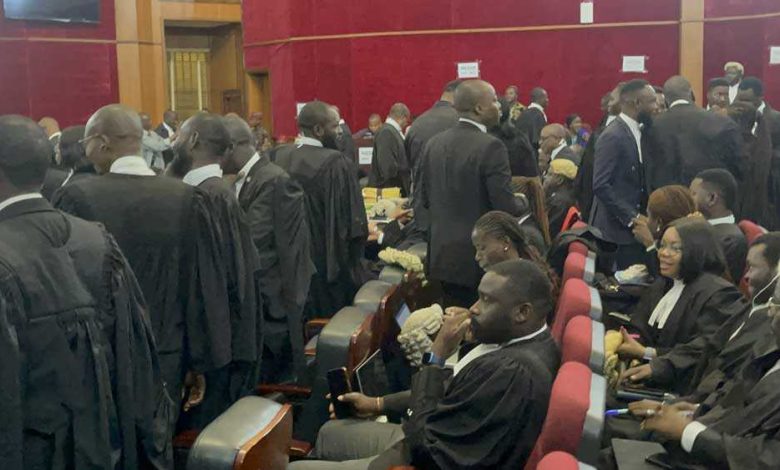
Lawyers of the embattled immediate past Governor of Kogi State, Alhaji Yahaya Bello have declared that the Economic and Financial Crimes Commission, EFCC, is an illegal organisation.
A member of his legal team, Mr. Adeola Adedipe, SAN, told the court on Tuesday that the Federal Government did not consult the 36 States of the federation before it enacted the EFCC Act through the National Assembly.
He argued that section 12 of the 1999 Constitution, as amended, required the various Houses of Assembly of states to ratify the Act before it could become operative.
“This is a very serious matter that borders on the constitution and the tenets of federalism. It has to be resolved because as it stands, the EFCC is an illegal organization,” Bello’s lawyer added.
However, EFCC’s lawyer, Mr. Kemi Pinheiro, SAN, urged the court to refuse the application, insisting that the warrant of arrest on the former governor should not be set aside until the defendant makes himself available for his trial.
Pinheiro said: “The defendant cannot stay in hiding and be filing numerous applications. He cannot ask for the arrest order to be vacated until and when the defendant is present in court for his arraignment. He cannot be heard on that applied application.
“The main issue should be ascertaining the whereabouts of the defendant. All these applications he is filing are nothing but dilatory tactics intended to delay his arraignment and frustrate the proceedings.
“If he wants the order of arrest to be discharged, let him come here and make the application.
“Our position is that the defendant should be denied the right of being heard, until he is physically present before this court.”
EFCC told the court that the Supreme Court had since settled the issue of its legality.
“The charge before this court is not against a state or House of Assembly, but against an individual who is said to have laundered public funds.
“It is against an individual who is said to have taken public funds to buy houses in Lagos, Maitama and also transfered funds to his accounts abroad,” EFCC added.
